From Accidents to Alarms: How Your Pet’s Behavior Could Signal a Major Health Issue
When our pets behave differently, our first instinct is often to correct the behavior. But what if that sudden change isn’t a sign of disobedience, but a desperate cry for help? One Redditor recently shared a heartbreaking lesson learned too late—when their beloved pet began having accidents out of nowhere, they responded with frustration, only to later discover their furry friend was gravely ill. By the time they sought veterinary care, the only option left was to say goodbye.
Pets can’t tell us when something is wrong. Unlike a child who can say, “My stomach hurts,” or an adult who can describe specific pain, animals rely on behavioral cues to communicate distress. If your pet suddenly starts urinating in inappropriate places or exhibiting unusual behavior, it could be a red flag for an underlying medical issue. Instead of reacting with punishment, consider it a sign to get them checked by a vet immediately.
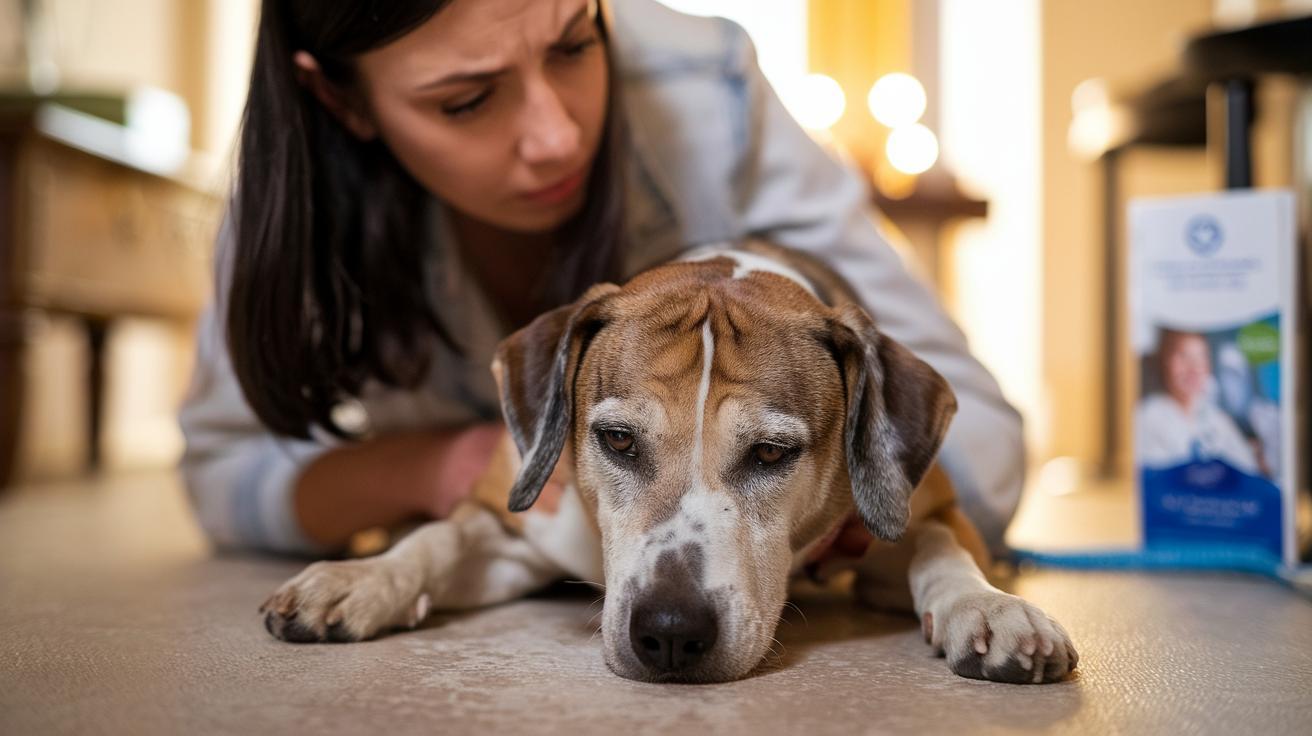
‘LPT: If your pet uncharacteristically starts having random “accidents,” do not start scolding as it could be a sign of a serious issue. Mine starting having accidents last week. Today he was put to sleep and all I can think about was how tough I was on him because of things he had no control over.’
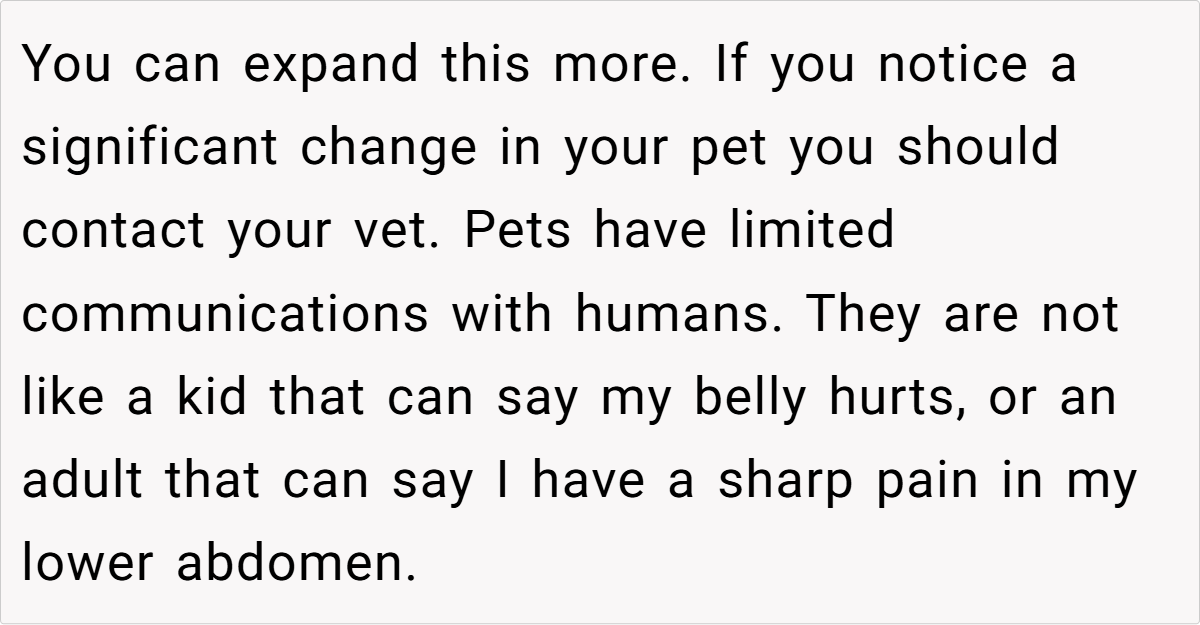
Dr. Jennifer Coates, a veterinarian and author, emphasizes that sudden changes in bathroom habits are a key symptom of various medical conditions. “Urinary tract infections, kidney disease, diabetes, and even neurological disorders can cause a pet to lose control of their bladder,” she explains. “Behavioral changes, including house soiling, should always be assessed with a medical lens before assuming it’s just bad behavior.”
In older pets, incontinence is often linked to organ failure. A study published by the American Veterinary Medical Association found that up to 30% of senior dogs experience urinary incontinence due to weakened bladder muscles or underlying disease. Cats, too, often suffer in silence—chronic kidney disease, one of the most common conditions in aging felines, can lead to excessive urination and dehydration.
A tragic example of this comes from Karl Lagerfeld’s famous cat, Choupette, who was once rumored to have developed health issues that required round-the-clock care. While Choupette received top-tier medical attention, many household pets aren’t as fortunate. Often, symptoms go unnoticed or are misinterpreted as mere misbehavior, leading to delays in treatment that can prove fatal.
But it’s not just physical illness that can trigger accidents. Dr. Coates points out that stress and anxiety can also play a major role. “Moving to a new home, introducing a new pet, or even a change in the owner’s routine can cause anxiety-induced accidents.” If medical issues are ruled out, pet owners should consider environmental or emotional factors.
So, what should you do if you notice a sudden change in your pet’s bathroom habits? Consult a Vet Immediately – Don’t wait. The sooner a diagnosis is made, the better the chances of successful treatment. Observe Other Symptoms – Is your pet eating less? Drinking excessively? Acting lethargic? Keeping track of these changes can help your vet identify the issue.
Avoid Punishment – Reacting with frustration will only make things worse. Instead, reassure your pet and focus on finding the root cause. Consider a Specialist – If your regular vet can’t pinpoint the issue, a veterinary neurologist or behaviorist may be needed.
Here’s what Redditors had to say:
Here’s what Redditors had to say about their own heartbreaking experiences:


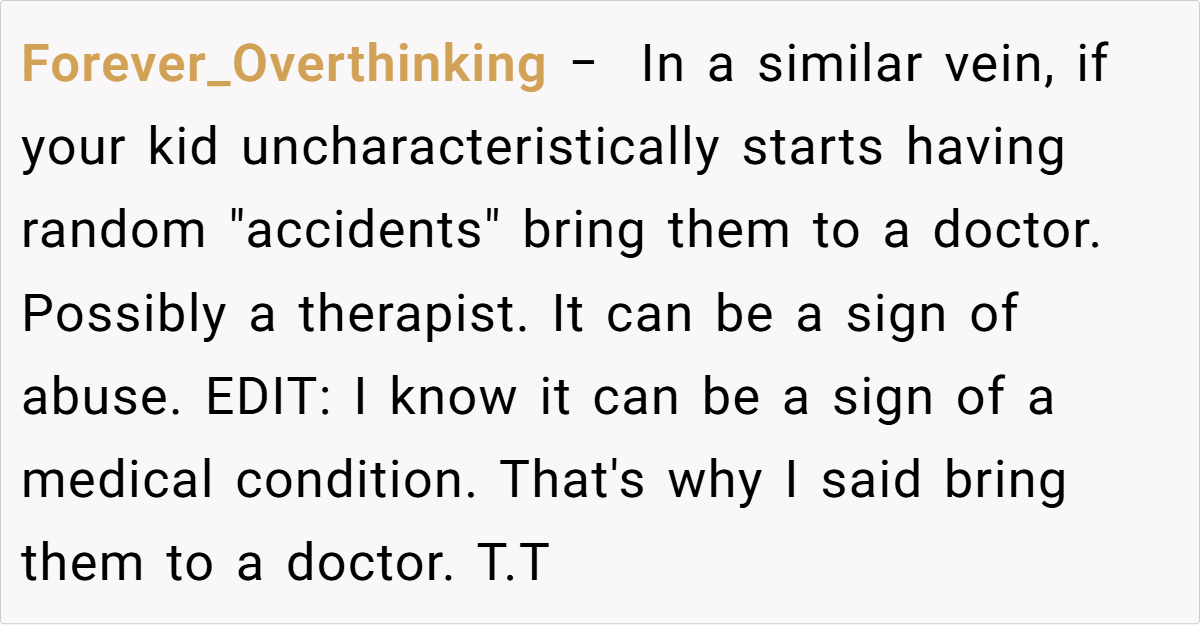

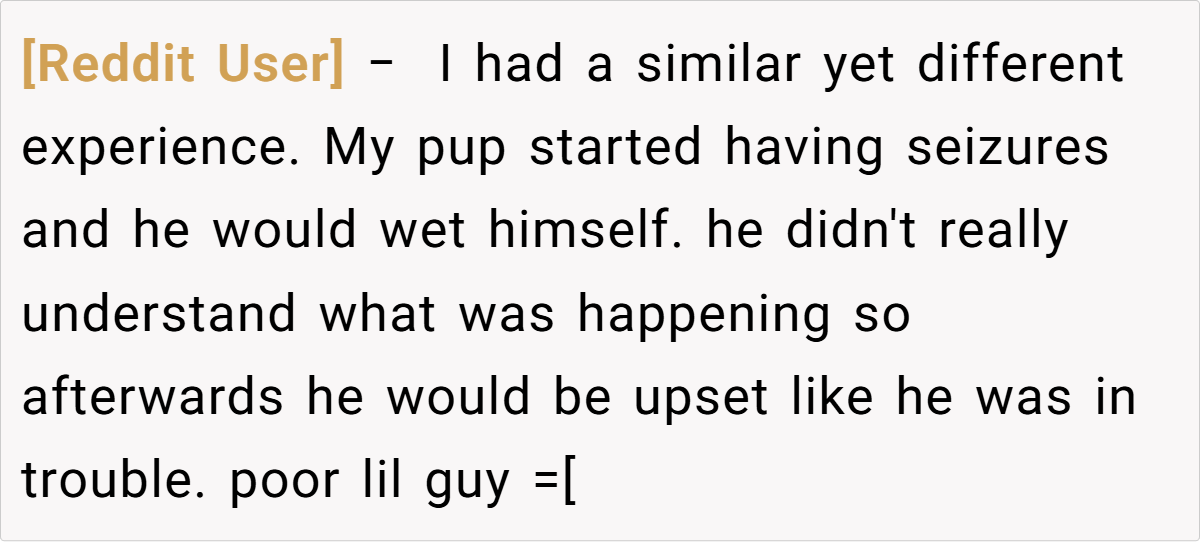

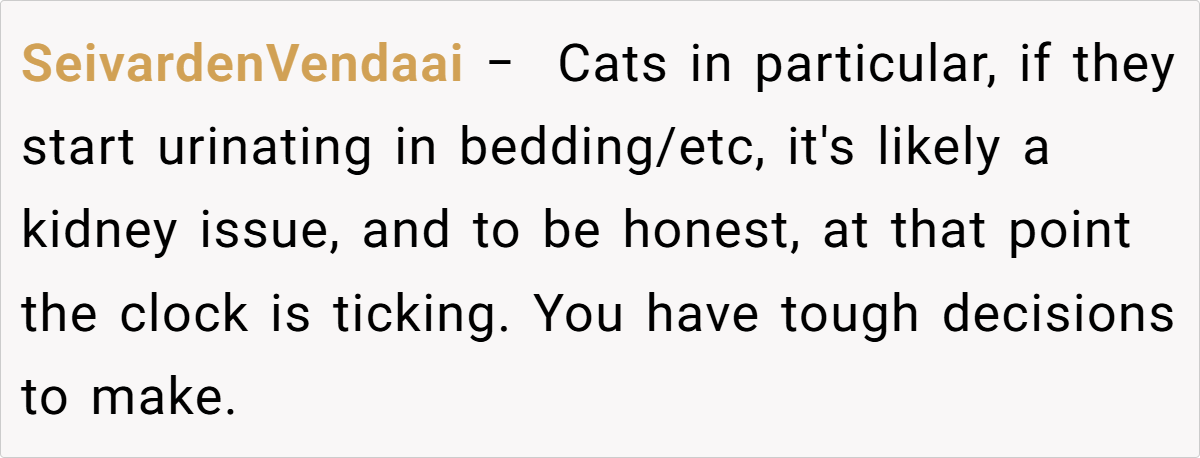
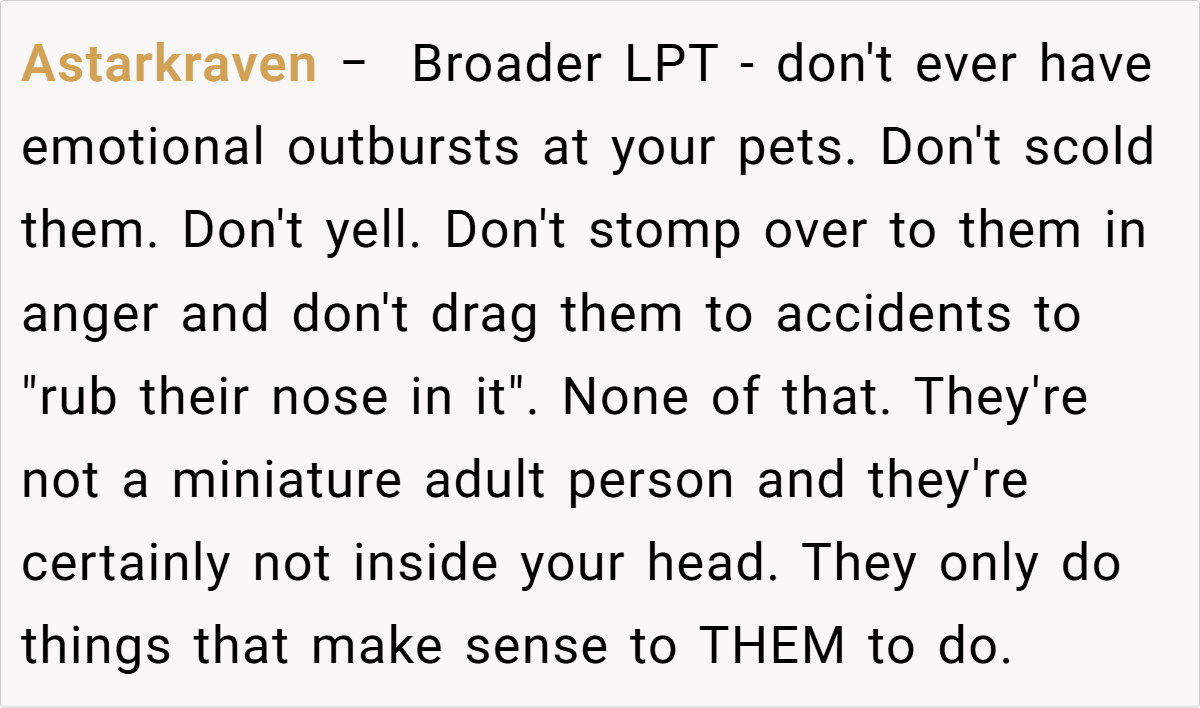
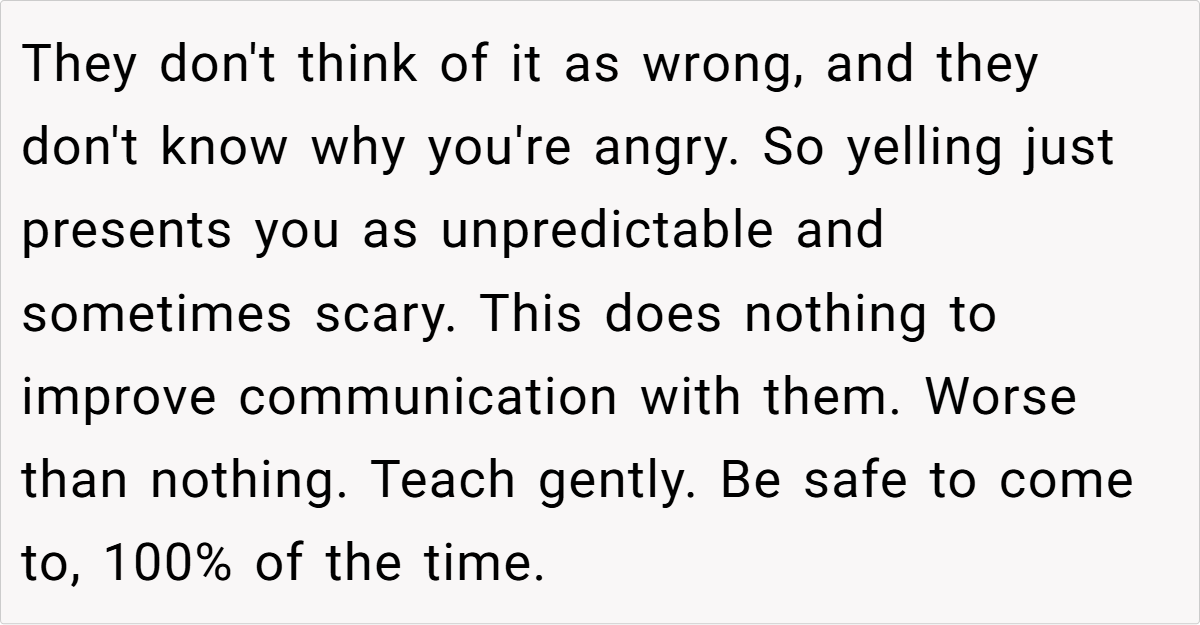

These personal stories highlight just how common it is for pet owners to misinterpret medical symptoms as mere accidents. The overwhelming sentiment? Be patient, be kind, and always prioritize a vet visit over punishment.
Losing a pet is never easy, but losing them while carrying regret is even harder. The next time your furry companion acts out of character, take a step back before reacting. Could they be trying to tell you something? Seeking medical advice early can make all the difference in their quality of life.
What would you do if you noticed sudden behavioral changes in your pet? Have you ever experienced a similar situation? Share your thoughts in the comments below!

